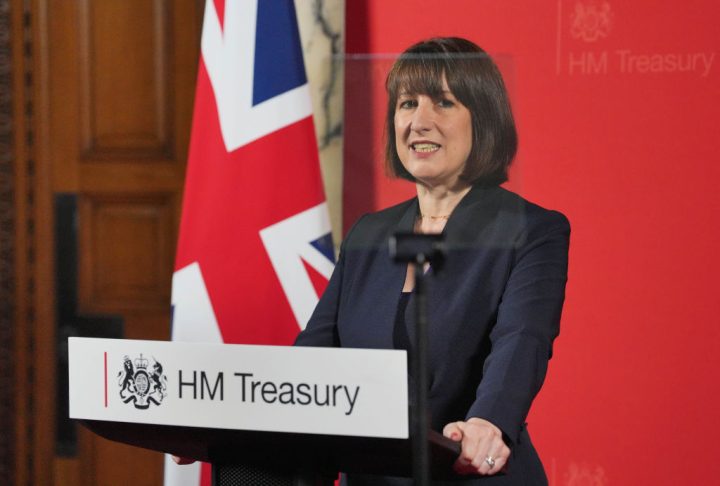Well, that didn’t last long. Having preached to us about fiscal responsibility and ‘securonomics’, Chancellor Rachel Reeves appears to be about to cave in at the first opportunity – by hinting that she will grant 5.5 per cent pay rises to teachers, NHS workers, and other public sector workers.
At the heart of Reeves’s problem is the role of pay review bodies
The unions feel entitled to pay rises of 5.5 per cent because they have been recommended by pay review bodies – even though that is more than 3.5 percentage points above inflation. But there is a very big problem. Labour’s manifesto – which we kept being told was ‘fully-costed’ – didn’t allow for pay rises of 5.5 per cent for several million public sector workers. Moreover, Reeves’s deputy at the Treasury, Darren Jones, has been going around telling us that the public finances are in a much worse state than the party believed (which is nonsense, according to Paul Johnson of the IFS, who makes the point that the previous government’s finances are out in the open). Public sector borrowing for June came in at £14.5 billion, three billion more than the Office for Budget Responsibility (OBR) had forecast. So where is the money for above-inflation pay rises going to come from?
There are really only three possibilities: either Reeves is going to have to jack up taxes, increase borrowing, or cut other services to pay for the tax rises. The last of those is somewhat unlikely. So that leaves tax rises – though not of income tax, national insurance of VAT, which Reeves has promised not to raise – and borrowing. But the government’s current capacity for yet more borrowing is not all that great, as Liz Truss discovered to her cost.
It was always likely to happen: trade unions, quangocrats, and many others who have spent the past 14 years decrying ‘Tory austerity’ – i.e., trying to balance the books – were going to think that Christmas had arrived with the Starmer government. Fiscal responsibility is easy to preach when you are a Labour Chancellor in waiting; much harder when you are in government and your party’s supporters are hammering on your door asking for more money.
But at the heart of Reeves’s problem is the role of pay review bodies. These were set up as independent bodies to advise the government on pay rises in the public sector. Yet over time their role has evolved into one more of advocacy. If you read the latest report from the School Teachers’ Review Body it is essentially just making the unions’ case.
It presents a graph claiming that public sector pay has fallen below private sector staff in recent years – without mentioning the far more favorable pension arrangements enjoyed by the former. It asserts that schools will struggle with recruitment if pay is not increased above the rate of inflation – but there is no acknowledgement of the high level of taxes and borrowing, and the effect of that on the economy. Moreover, it simply accepts the unions’ demand for a uniform increase in teachers’ earnings, without considering an obvious alternative: that if there is a shortage of teachers in particular subjects such as maths and physics, then shouldn’t salaries for those teachers be increased above those for other subjects? Most importantly of all, the report makes no mention of the abysmal productivity growth in public services – which the Office for National Statistics says is lower now than when Tony Blair came to power in 1997. Former Labour Prime Minister Jim Callaghan never shied away from telling public sector workers that pay rises would have to be earned through productivity growth. That point seems lost on the Teachers’ Pay Review Body.
Pay review bodies, like so many quangos, were set up in order to try to protect ministers from having to make unpopular decisions. But they have ended up doing rather the opposite. Their existence is making life far more difficult for Rachel Reeves, who now finds herself caught between her pre-election promises of fiscal responsibility and the politically difficult task of rejecting the recommendations of a pay review body. It seems she has balked at the latter and is on the point of saying to hell with the former.








Comments